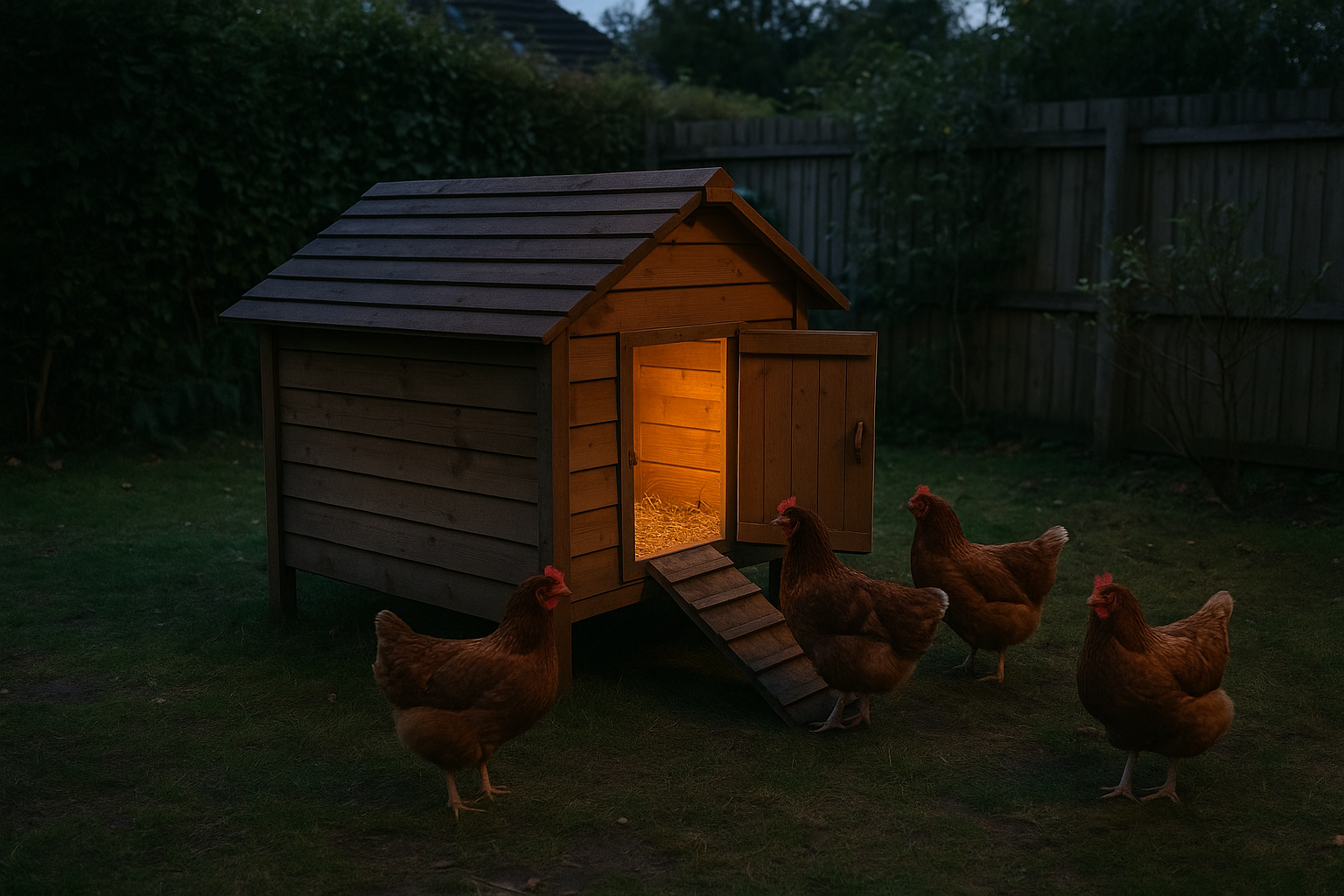Why Won’t My Hens Go Into The Coop At Night? Causes And Fixes
It can be really frustrating when dusk falls and your hens flatly refuse to go into the coop. Why won’t my hens go into the coop at night is one of the most common questions I get asked, and there are several reasons it can happen. From my own experience, there are four main causes: fear, discomfort, habit or environment. And if you can find the right cause, you’re halfway to tackling it.
Check for pests and discomfort
One of the first steps I would advise is to check for red mites. Red mites are to chickens what bed bugs are to humans. Just as you wouldn’t want to sleep on a mattress full of bed bugs, chickens are very reluctant to roost in a coop infested with red mites. These tiny blood-sucking parasites hide in cracks and crevices during the day, then feed on hens at night. If the coop has an infestation, hens quickly learn to avoid it. Signs include hens roosting outside, pale combs, reduced laying and restless behaviour.
If you need more information on spotting and getting rid of these parasites, read our article How to Identify and Treat Red Mite Infestations in Chickens.
Other discomforts that can put chickens off going in the coop include:
- Poor ventilation, making the coop stuffy or damp.
- Dirty bedding that hasn’t been changed for a while.
- Perches that are too thin, wide or the wrong shape for chickens to grip on, or which are unstable.
I always recommend giving the coop a thorough clean and mite check if hens suddenly refuse to roost. Even if it’s not the cause, it rules out some common issues.
Fear of the coop or run
Sometimes the hens may feel unsafe in the coop. This can often be a result of a predator scare, such as foxes, rats or even a neighbourhood cat getting too close. They can also be unsettled by loud noises or sudden changes, like moving the coop to another part of the garden.
At these times, a little patience and reassurance can be really helpful.. Putting a low night-light inside the coop can encourage the hens to go in, as they can see it’s safe and free from predators. Make sure you use a low-power, LED, solar or battery-powered light; you don’t want it too bright, too warm or connected to mains electricity. You can switch this off after they have settled.
Young or new birds
Pullets and newly introduced hens often don’t know where to sleep. If there’s an established flock, they’ll eventually learn to follow the rest of the hens in. If they are all new to the coop, then the simple fix is to physically put them inside at dusk, or put them near the pop hole and try nudging them to go in by themselves. If you do this for several nights in a row, they’ll eventually get the gist. I’ve done this myself, and it does work — although it means a bit of evening chicken-wrangling until they catch on.
Environmental reasons
Sometimes the coop is just too hot, too cold or too cramped. In summer, a small wooden house can become stifling, while in winter dampness can make it uninviting. Make sure ventilation is right and that there’s enough space for all hens to roost comfortably. A standard rule is at least 20cm of perch per bird, but more is always better. If the coop is too small, you’ll need to get a bigger one. If you need guidance, read our post Advice on Housing Chickens.
Practical fixes and key takeaways
Here are a few tried and tested solutions:
- Place treats inside the coop at dusk to lure hens in.
- Use a dim solar light to make the coop more inviting.
- Put hens inside for several nights to establish routine.
- Check and treat for red mite or other pests.
- Give the coop a thorough clean and change the bedding.
- Ensure perches are comfortable and there’s enough room.
- Make sure there is adequate ventilation in the coop.
- Avoid chasing hens or forcing them roughly into the coop. A calm, consistent routine works best, and hens quickly learn where bedtime should be.
When to get concerned
If hens continue refusing the coop despite it being clean, comfortable and pest-free, it’s worth checking for wider health problems. Birds that are weak, stressed or unwell may not roost properly. If refusal is paired with lethargy, weight loss or poor laying, a vet check is wise.
Conclusion
Hens refusing to go into the coop at night is one of the most frequent questions I see from new keepers, but the causes are usually simple to fix. Check for red mite, make the coop inviting, guide new birds patiently and always keep conditions comfortable. For me, the key is routine — once hens feel safe and secure, they’ll happily march in at dusk without fuss.
Disclosure: This post may contain affiliate links. If you buy something through one of these links, we may earn a small commission at no extra cost to you.
Kevin O’Hara got his first chickens back in 1972. A backyard chicken keeper based in Yorkshire, he created of KeepingChickens.uk back in 2012. With years of hands-on experience, he shares practical, UK-specific advice to help others care for happy, healthy hens. Learn more about Kevin on the author page.






